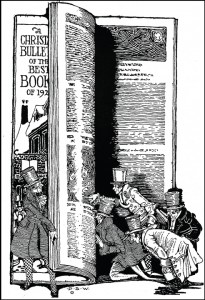
I’ve struggled with separating autobiographies from memoirs. I’ve read slews of autobiographies of famous classic movie stars, ghostwritten, of course. Joe Shmoe, Big Movie Star, by Joe Shmoe, and Little Nobody. These bios supposedly encompass the star’s entire life, with anecdotes from all stages of career, DUI’s, lovers, divorces, etc. Dates are given to back up some of the stories told. Still, how many people can recall verbatim conversations they’ve had 40 years ago? Some of the books I’ve perused are written as if events are so fresh in the person’s mind, that you picture them chit chatting in real time–which of course is silly. So, how does that differ from a memoir? I know I’ve pondered this question before, and probably will again, until the differences are crystal clear.
From my slim research on the world wide web, memoirs are not usually of one’s entire life–only bits and or pieces. Or, more to the point–not historical info, more of an inner coming to terms with life–how one became who one is. Facts are of little consequence in a memoir? I think that is pushing the limits of liberalness in this genre, just ask James Frey, author of A Million Little Pieces–his sort of memoir was marketed as a bona fide historical factual life story, and boy did Oprah castrate that guy when it turned out he fudged loads of stuff, even if the story’s essence was his personal experience. Who is the judge and jury on these things, anyhow? Not agents–from what I understand, it was an agent who claimed he couldn’t sell the book as fiction–no one cared, but if told as a life lesson, best seller. And once the blurring of classifications occurred, there was no going back–the publisher bought it with the understanding it was factual, the publicity department pushed it as true life, and Oprah hailed it as the Next Best Thing. What I don’t get, is the reaction of readers who found inspiration in his words and stories turning on him and demanding their money back. If you were inspired, what does it matter if every thing in the book was nailed down fact? How does that change the message of the story? I do understand being pissed that what was pushed as one thing, turned out to be partially something else. It’s like ghostwriting–I was really disappointed and extremely annoyed when I found out Dick Francis didn’t write his own books, his wife penned them–with his racing expertise thrown in. But, did that mean the books were instantly transformed into crappy lit? No. The words are the same whether a real story, an expanded upon incident, or written by someone other than who you believed it to be. So, when a manuscript is submitted, who decides if there is enough bones of fact to declare it an autobiography, as opposed to a memoir?
I’ve been putting words to computer screens concerning various points in my existence, not for publication, as if, lol, but for my own clarification of life events, as Facebook has termed experiences in our existences. As I write, I know damn well that I can’t recall names and streets and complete conversations–but the essence is certainly there. I have distinct memories of particular events, but at the same time, some are through a glass darkly–distorted, fogged, displaced. I write what I remember any way, even if those events only happened in my head. And–ah ha! That’s apparently what a memoir is supposed to be! At least, according to the late Gore Vidal:
“a memoir is how one remembers one’s own life, while an autobiography is history, requiring research, dates, facts double-checked.”
I think I’ll remember my life as one richly fraught with successful endeavors, fabulous friendships, passionate trysts and brilliant dialog. Hey–my life, my telling of it. Just don’t alert the media–especially Oprah. As if!
Footnote–the ABE site inspired this post–they have a bunch of forgotten memoirs–interesting stuff. Check it out here.

Truth in memoirs can be a tricky issue. Here’s what I put in the “Author’s Note” in my recently released and critically acclaimed memoir, “Dodging Machetes.” Having taken two memoir writing courses and read extensively on the subject, this is, I think, the proper way to handle it:
All of the events written about in “Dodging Machetes” happened over.
forty years ago. I did not take notes or keep a journal at the time. In
my efforts to fill the inevitable memory gaps, I have tried to be true.
to both the emotions and the details of what actually happened. The
dialog was recreated to be an approximation of what was actually said.
A few of the less significant scenes have been taken out of chronological.
order or are compilations.
Most of the characters’ names have been changed, and some of their.
identifying details have been altered to protect their anonymity.
Such details are unimportant to the story, the events, or the character.
compositions.
That seems like a reasonable way to approach writing a memoir. Thank you for your insight!
Thanks Diane. I think the goal is to tell a story the readers will enjoy and be accurate too.
according me , aproax memoir and bio graphy is same but memoir have some ethical and periodic, spiritual bio.
Bookstore